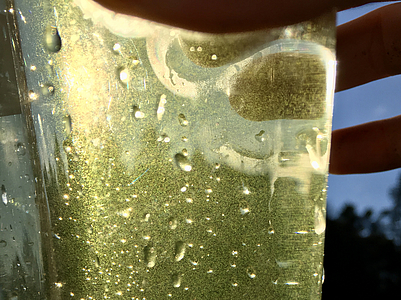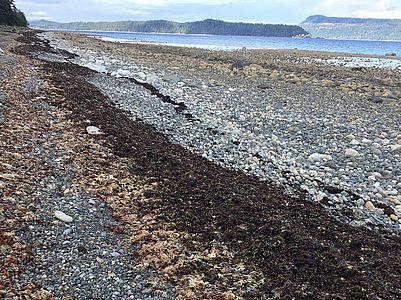Microbial-Carbohydrate Interactions Group
Merry Christmas

Research Aims
Overall scientific aim: Phenotype bacterial microbiomes to identify physiological capacities and quantify heterotrophy in situ.
Simply put, with our research, we aim to discover what mechanisms bacteria use to degrade complex sugars and how this affects the environment in which they live. For example, the turnover of sugars in the oceans and how this affects the global carbon cycle or the degradation of sugars in human and animal digestive systems and how this affects health.
We aim to redefine how we analyse microbial heterotrophy by using novel culture-independent approaches to study the phenotypes of microorganisms. For example, using fluorescent substrate analogues to observe a microbial metabolism using microscopy. We apply a wide range of methods from the fields of molecular ecology to identify the organisms and discover what they can potentially do (DNA extraction, PCR, diversity analysis by 16S rRNA, metagenomics, FISH and microscopy). We focus our research on microbiology using representative cultures for growth analysis and activity measurments under variing conditions. Finally we use glycobiological techniques to extract sugars and label them for activity analysis (carbohydrate extractions, sugar analysis, fluorescent sugar production).
We hope to discover how individual microorganisms use distinct bacterial foraging mechanisms to process polysaccharides and how this affects substrate availability to the wider microbial community.
Contact
Dr. Greta Reintjes
Büro 3975, BIOM, James-Watt-Str. 1
28359 Bremen
Email reintjesprotect me ?!uni-bremenprotect me ?!.de
Telephone: 0421-218-56655

![[Translate to English:] We study how algae sugars are degraded by bacteria [Translate to English:] Sea shore showing algae beds](/fileadmin/_processed_/5/c/csm_ROS_shore_55e29e72c1.jpg)
![[Translate to English:] We visualise microbial sugar metabolism using FLAPS [Translate to English:] Green signal in cells is specific sugar](/fileadmin/_processed_/0/f/csm_FLAPS_bacteria_b1b49bf9d3.gif)
![[Translate to English:] We work with pure cultures and environmental samples [Translate to English:] Bacteria on Agar plate](/fileadmin/_processed_/9/4/csm_Plate_6372afe934.jpg)

![Conductivity, Temperature, Depth device for sampling seawater [Translate to English:] CTD](/fileadmin/_processed_/9/0/csm_CTD_2_349571e1b8.jpg)


![Diatoms [Translate to English:] Diatom cells under microscope](/fileadmin/_processed_/0/a/csm_Diatom_microscopy_image_835fabd3b8.png)




![Liquid Chromotography [Translate to English:] Liquid chromotography](/fileadmin/_processed_/d/7/csm_Chromotography_ce9a789602.jpeg)


